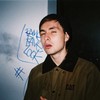Dutch artist Hans Eijkelboom works through the medium of clothes. Kind of. You might know him from his previous project, 10 Euro Outifts, where he bought – and photographed himself in – 32 sub-ten euro outfits over the course of ten months. His new book, People of the Twenty-First Century, visits the subject of sartorial decisions once more, only this time he turns his camera outwards.Over the course of ten years (1993-2013), Eijkelboom took to the streets to document tribes of the general public, the everymen and everywomen. But don't make the mistake of thinking he's interested in fashion. "No," he says, when we meet up to discuss the book. "I’m interested in people and their desire to shape their identity with attributes.”
Annons
In this case, those attributes are clothes and mass trends – be it a mad flush of pink worn across men's chests, a sudden wave of red sailing jackets or even a sea of natty orange trilby hats. People in (scarily) similar clothing appear in blocks of 12 in the book, and each "look" was captured in a very short timeframe. "I worked in the same way from the beginning of the project," says Eijkelboom. "I went to a city, looked for the main street, and tried to find a mass theme, a particular piece of clothing or accessory. Then I began taking photographs. I never worked more than two hours on the same theme."

There are many "mass themes" in the book, but seeing as the project brings us almost up to the present day, I asked Eijkelboom if he thought there was a defining trend that characterised our moden era. "Message T-shirts," he says. "I find it interesting that more and more messages appear on clothes. It’s not about attempting to look attractive anymore – rather, it's about saying, directly, 'I'm looking for love'." He feels the internet is to blame. "Your image in the digital world is more important than the one in the ordinary world.”It might be objectively hilarious to look at 12 shots of men all in various shades of genital pink, but People of the Twenty-First Century is tender at its heart. Eijkelboom loves people, normal people. People just going from A to B. “Compassion and love are the basis of my project," he says. "I am just trying to pose the question we all ask ourselves, which is: 'Am I an independent individual, or am I simply a product of the culture in which I live?'”
Annons
Hans Eijkelboom's People of the Twenty-First Century is published by Phaidon. More from VICE: In Defence of 'The Death of Klinghoffer and Art That Takes RisksPhotographing the Beautiful Weirdos of Los Angeles
